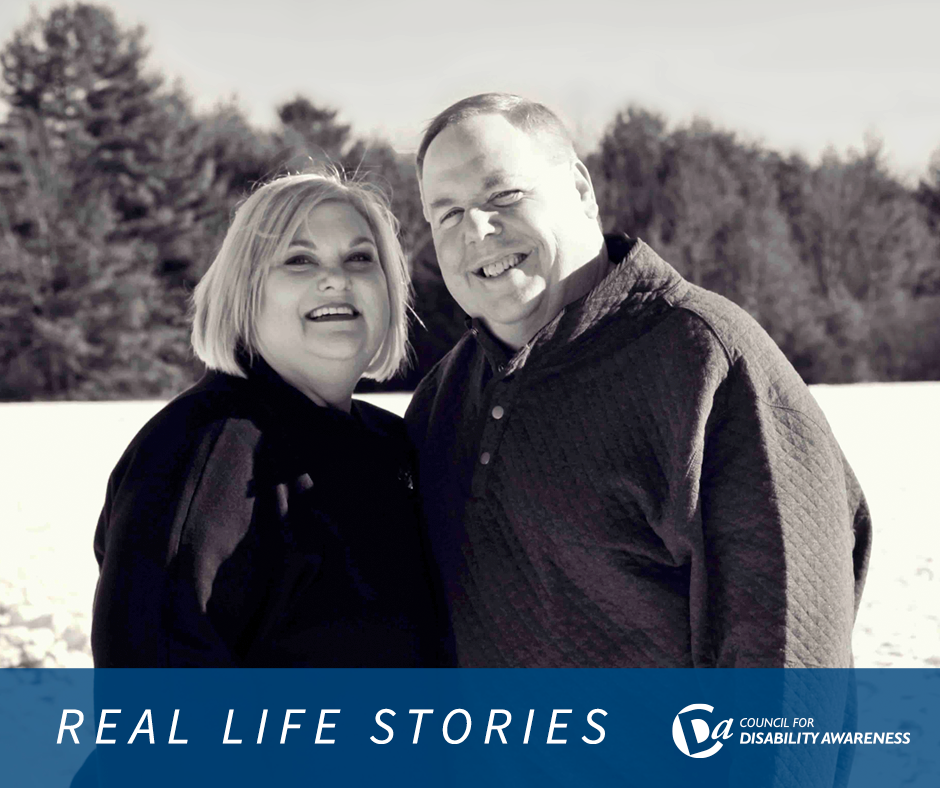It started with what seemed to be a sinus infection. “But it just wouldn’t go away,” remembers Lisa Gohra. So she went to see her doctor.
He put her through a series of tests: ultrasounds, chest X-rays, CAT scans, needle biopsies. Then the diagnosis arrived: Advanced Papillary Thyroid Cancer with a tall cell variant. The variant made an otherwise treatable cancer very aggressive.
In a moving video that the American Cancer Society created this spring (watch below), Lisa Gohra discusses how she was able to move through her journey into cancer. She was diagnosed with a metastatic form of the disease, which meant it had spread to other parts of her body. And it was stage four.
She says her recovery — and coming to terms with living with an incurable form of cancer — came down to a decision to focus on the kindness of the community supporting her.
Gratitude as an anchor
Lisa underwent two lengthy surgeries to remove a nine centimeter tumor that had invaded her thyroid, as well as more than 70 cervical lymph nodes and tissues within her neck, trachea and vocal cords. She received inpatient care at Brigham Women’s Hospital with outpatient care at the Dana-Farber Cancer Institute in Boston. In the video, Lisa explains how she made a conscious decision to focus on gratitude for her team of doctors led by Dr. Tom Thomas — and that became her mental anchor.
Then came the kindness of the Hope Lodge in Boston. Following her surgeries, Lisa had to go through nine weeks of specialized care and radiation treatment, five days a week. Considering her home was 90 miles away in West Springfield, Western Massachusetts, the only way she and her husband Dave could have made it to the treatments would have been to move into a hotel in Boston.
The AstraZeneca Hope Lodge stepped in to help. Hope Lodge is run by the American Cancer Society and provides a free home away from home for cancer patients and caregivers who need to visit Boston area hospitals for their treatment. It’s one of more than 30 centers around the country that provide this remarkable form of support for free.
The key role of the caregiver
As Lisa moved through this disorienting and deeply painful time, her husband Dave Burke was the stable force, the caregiver, and chief cheerleader. He, of course, still needed to work a full time job. Both Lisa and Dave work for MassMutual, a founding and current member company of The Council for Disability Awareness, and this is where the next form of kindness appeared.
“My company was so supportive of us,” explains Dave. “When I told them, they came and sought me out in person and said, ‘Tell us what’s going on. What do you need, and what can we do to make your life easier?’
“I said, you know what? I’m going to need some flexibility with my work arrangement. I may need to work remote for a couple of months so I can be with Lisa and have time for our family,” Dave pauses and adds: “That was such a weight taken off my shoulders.”
The value of disability insurance
Dave spent more than two months working remotely in their room in Hope Lodge. He spends his days working at MassMutual supporting its disability income insurance business, and says he had a profound insight into just how powerful this form of insurance is when he and Lisa actually needed it themselves.
Lisa’s group disability insurance kicked in soon after she left work, and she also had an individual disability income insurance policy that supplemented her income. This meant she received a substantial amount of her income throughout her time off work. “Because we had the insurance in place, all Lisa had to do was focus on getting better,” explains Dave. “The bills got paid.”
According to data from the Integrated Benefits Institute, cancer is the second most common reason for long-term disability claims. Yet while staying at the Hope Lodge, Dave says he became aware of just how many families didn’t have disability income insurance coverage — and how the lack of such a financial safety net was creating considerable amounts of stress.
“About 90 percent of the families I talked to didn’t have it,” he says. “I would talk to people there and the biggest thing that I think hurt them in their recovery was when they had that financial stress. There were so many people saying things like, ‘I need to get better soon because I’m going to lose my house’, or ‘I’m going to lose my job with my health insurance.’”
Giving back
Lisa has now returned to work full time but she and Dave are continuing their practice of gratitude. Every few months, they load up their car with boxes of food and drink, and drive back to Boston’s Hope Lodge to bring donations to the families still living there.
“I don’t ever want to forget what I was given,” says Dave. “I never wanted to forget that there were people there for me in my toughest time.”
To make a donation to Boston’s Hope Lodge, you can click here. To learn more about disability insurance and how it works, visit RealityCheckup.org



